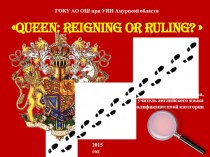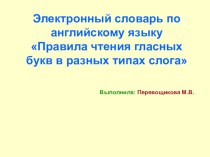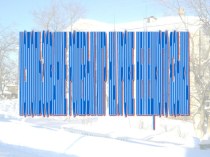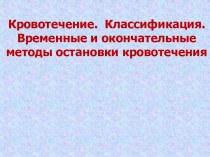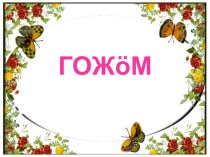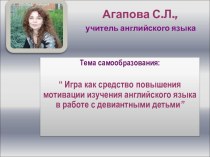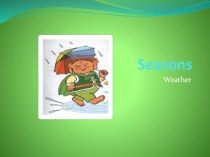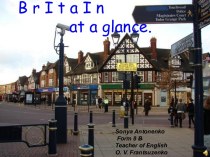- Главная
- Разное
- Бизнес и предпринимательство
- Образование
- Развлечения
- Государство
- Спорт
- Графика
- Культурология
- Еда и кулинария
- Лингвистика
- Религиоведение
- Черчение
- Физкультура
- ИЗО
- Психология
- Социология
- Английский язык
- Астрономия
- Алгебра
- Биология
- География
- Геометрия
- Детские презентации
- Информатика
- История
- Литература
- Маркетинг
- Математика
- Медицина
- Менеджмент
- Музыка
- МХК
- Немецкий язык
- ОБЖ
- Обществознание
- Окружающий мир
- Педагогика
- Русский язык
- Технология
- Физика
- Философия
- Химия
- Шаблоны, картинки для презентаций
- Экология
- Экономика
- Юриспруденция
Что такое findslide.org?
FindSlide.org - это сайт презентаций, докладов, шаблонов в формате PowerPoint.
Обратная связь
Email: Нажмите что бы посмотреть
Презентация на тему Праздник английской поэзии
Содержание
- 2. William Shakespeare (1564-1616)
- 3. William Shakespeare (baptised 26 April 1564 –
- 4. Шекспир. Сонет 121Уж лучше грешным быть, чем
- 5. Самуил Яковлевич Маршак1887-1964
- 6. George Gordon Byron (1788-1824)
- 7. George Gordon Byron (22 January 1788– 19
- 8. Она идет во всей красе — Светла,
- 10. Thomas Moore (28 May 1779 – 25 February
- 11. THOSE EVENING BELLS
- 12. John Keats (1795-1821)
- 13. John Keats (/ˈkiːts/ 31 October 1795 – 23 February
- 14. «Кузнечик и сверчок»
- 15. Lewis Carroll (1832-1898)
- 16. Charles Lutwidge Dodgson (27 January 1832 –
- 17. Кэрол Льюис. Верлиока.JABBERWOCKY Twas brillig, and the slithy
- 18. English
- 19. Edward Lear 1812 -1888
- 20. There was an Old Man of Peru,
- 21. There was a Young Lady of Niger,Who
- 22. There once was a man from Harare,Who
- 23. Скачать презентацию
- 24. Похожие презентации
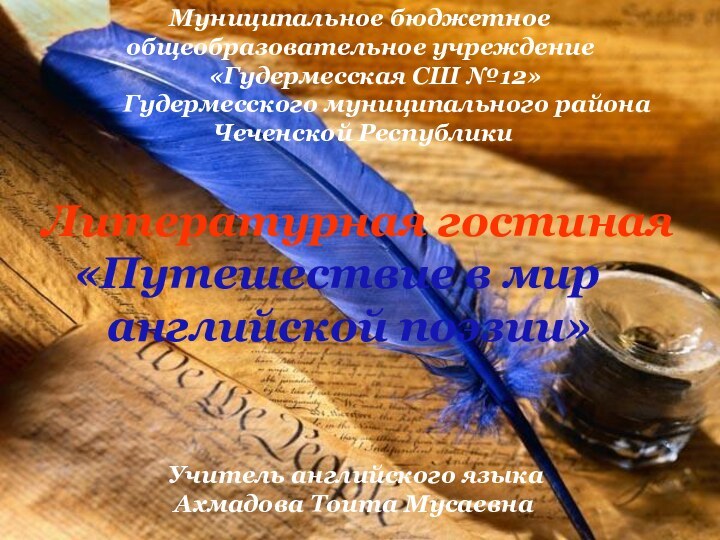



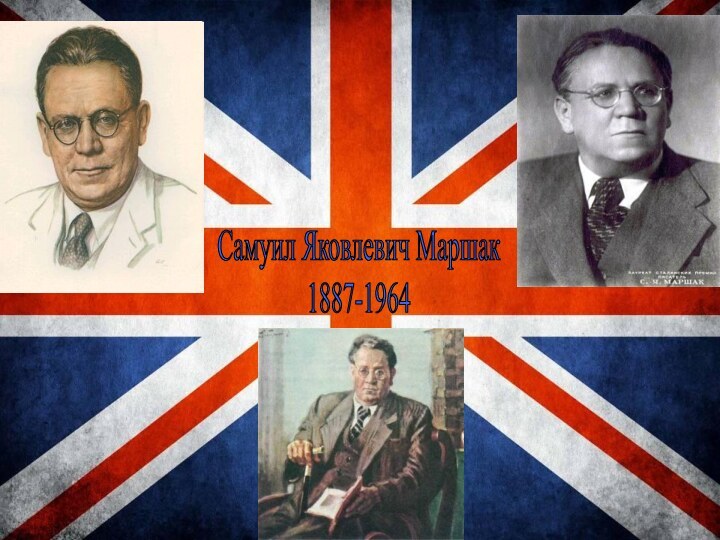
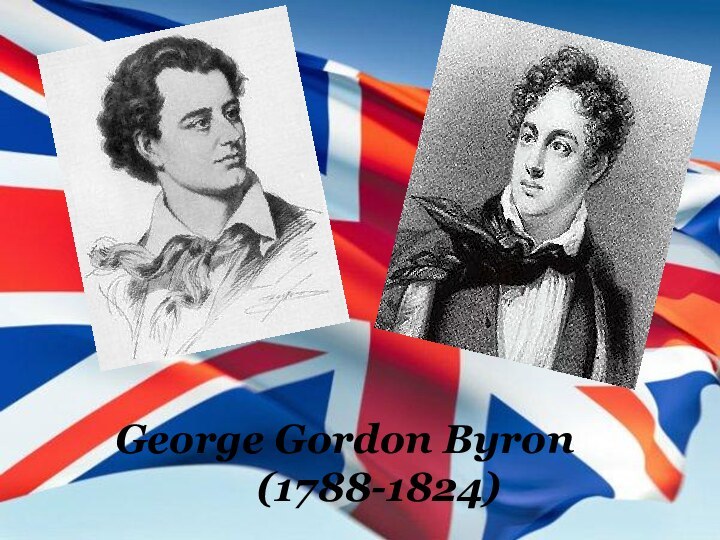
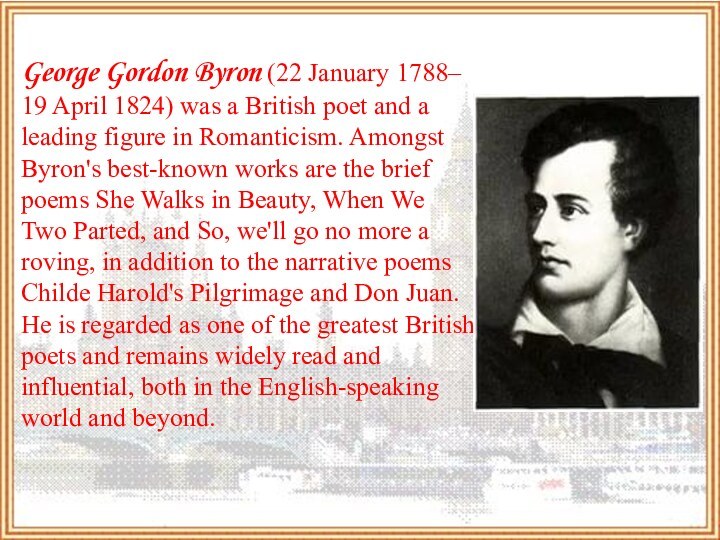
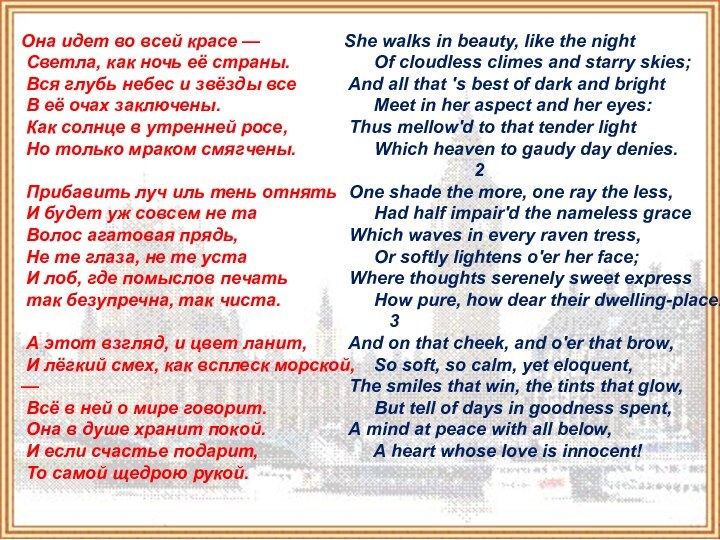

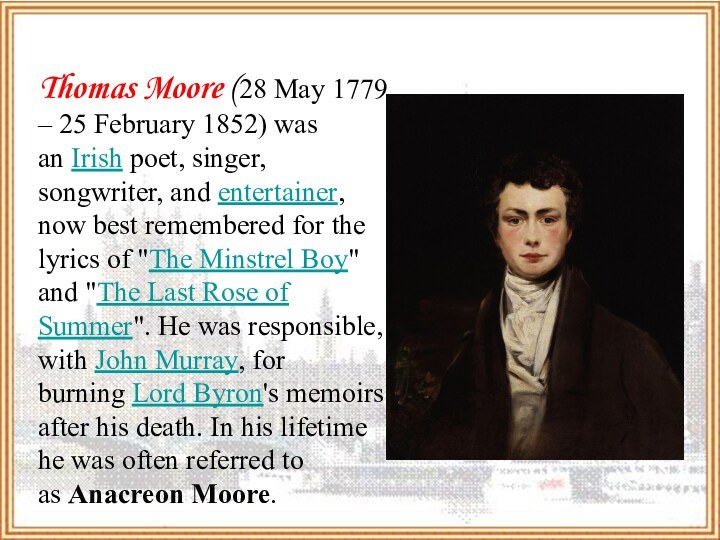
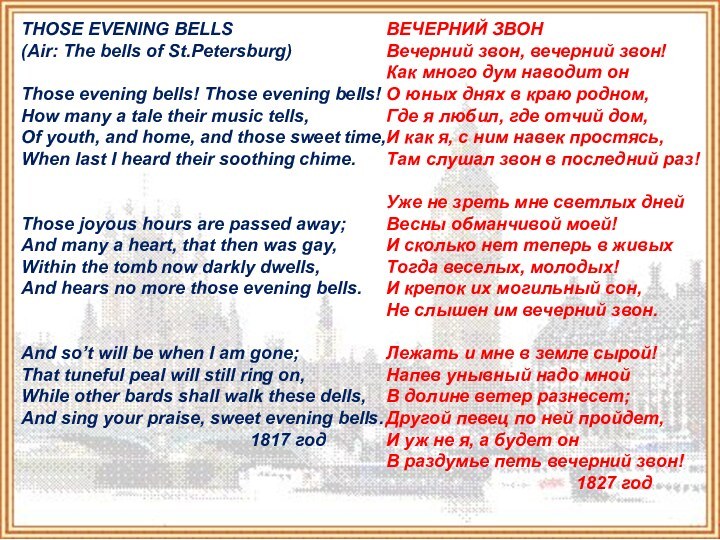
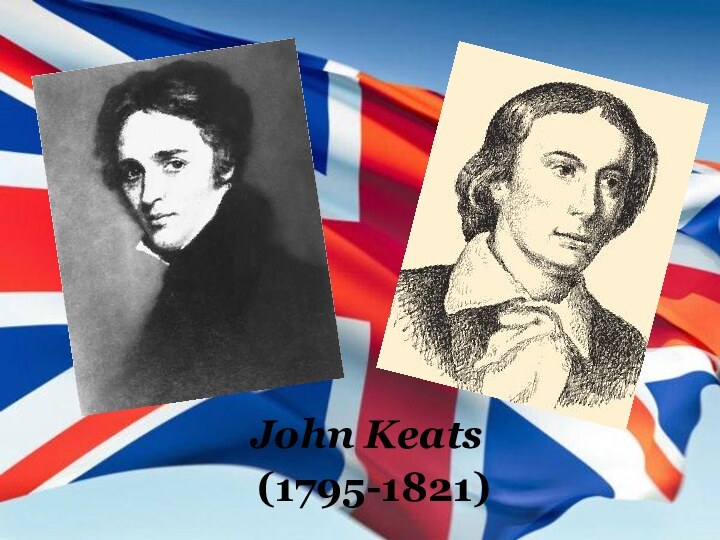

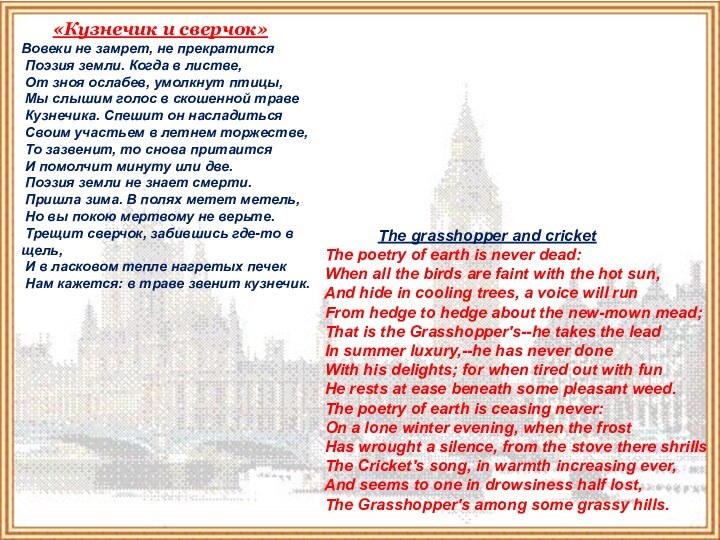

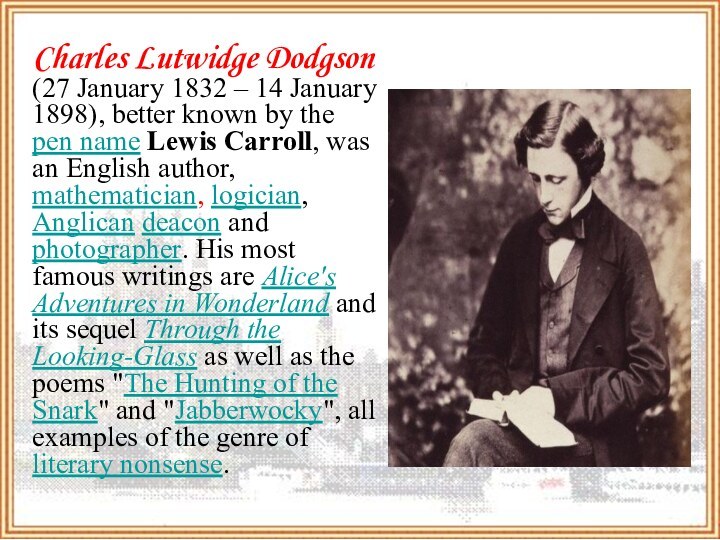
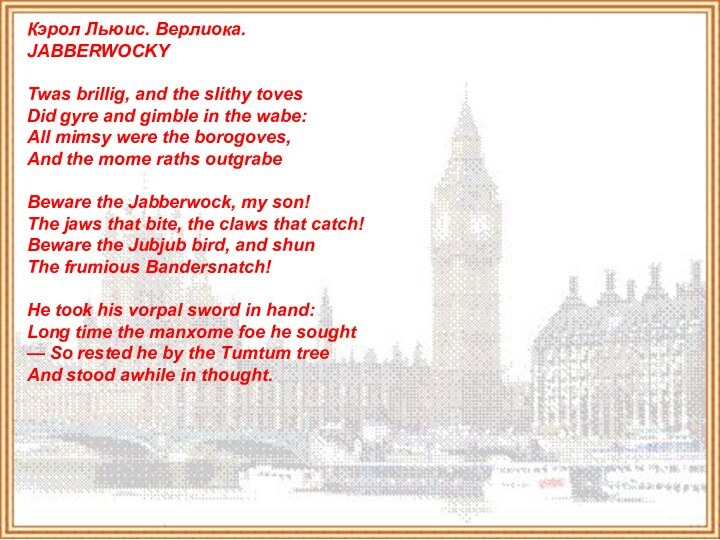


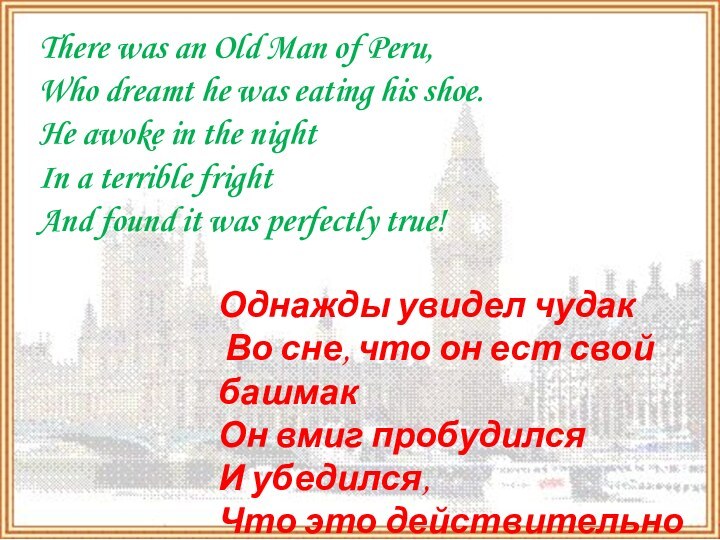
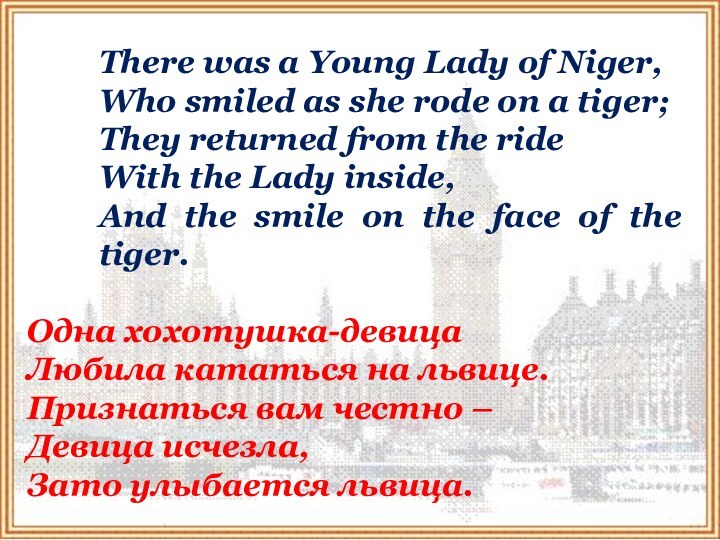
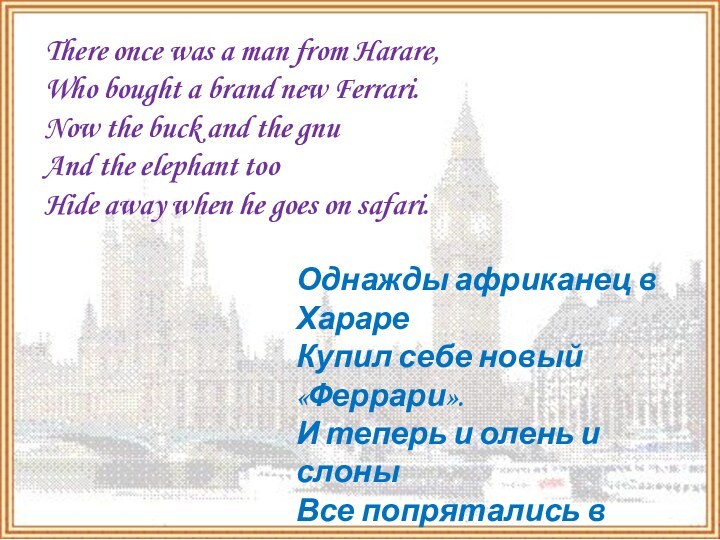
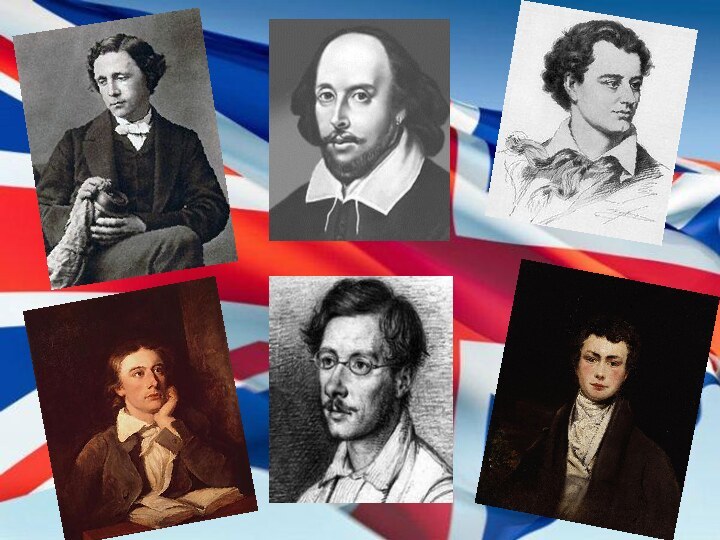
Слайд 3 William Shakespeare (baptised 26 April 1564 – died
23 April 1616) was an English poet and playwright,
widely regarded as the greatest writer in the English language and the world's preeminent dramatist. He is often called England's national poet and the "Bard of Avon". His surviving works, including some collaborations, consist of 38 plays,154 sonnets, two long narrative poems, and several other poems. His plays have been translated into every major living language and are performed more often than those of any other playwright.Shakespeare was born and raised in Stratford-upon-Avon.
Слайд 4
Шекспир. Сонет 121
Уж лучше грешным быть, чем грешным
слыть.
Напраслина страшнее обличенья.
И гибнет радость,
коль ее судитьДолжно не наше, а чужое мненье.
Как может взгляд чужих порочных глаз
Щадить во мне игру горячей крови?
Пусть грешен я, но не грешнее вас,
Мои шпионы, мастера злословья.
Я - это я, а вы грехи мои
По своему равняете примеру.
Но, может быть, я прям, а у судьи
Неправого в руках кривая мера,
И видит он в любом из ближних ложь,
Поскольку ближний на него похож!
Перевод С.Маршака
Shakespeare. Sonet 121
'Tis better to be vile than vile esteem'd,
When not to be receives reproach of being,
And the just pleasure lost which is so deem'd
Not by our feeling but by others' seeing:
For why should others false adulterate eyes
Give salutation to my sportive blood?
Or on my frailties why are frailer spies,
Which in their wills count bad what I think good?
No, I am that I am, and they that level
At my abuses reckon up their own:
I may be straight, though they themselves be bevel;
By their rank thoughts my deeds must not be shown;
Unless this general evil they maintain,
All men are bad, and in their badness reign.
Слайд 7
George Gordon Byron (22 January 1788– 19 April
1824) was a British poet and a leading figure
in Romanticism. Amongst Byron's best-known works are the brief poems She Walks in Beauty, When We Two Parted, and So, we'll go no more a roving, in addition to the narrative poems Childe Harold's Pilgrimage and Don Juan. He is regarded as one of the greatest British poets and remains widely read and influential, both in the English-speaking world and beyond.
Слайд 8
Она идет во всей красе —
Светла, как
ночь её страны.
Вся глубь небес и звёзды все
В её очах заключены.Как солнце в утренней росе,
Но только мраком смягчены.
Прибавить луч иль тень отнять
И будет уж совсем не та
Волос агатовая прядь,
Не те глаза, не те уста
И лоб, где помыслов печать
так безупречна, так чиста.
А этот взгляд, и цвет ланит,
И лёгкий смех, как всплеск морской, —
Всё в ней о мире говорит.
Она в душе хранит покой.
И если счастье подарит,
То самой щедрою рукой.
She walks in beauty, like the night
Of cloudless climes and starry skies;
And all that 's best of dark and bright
Meet in her aspect and her eyes:
Thus mellow'd to that tender light
Which heaven to gaudy day denies.
2
One shade the more, one ray the less,
Had half impair'd the nameless grace
Which waves in every raven tress,
Or softly lightens o'er her face;
Where thoughts serenely sweet express
How pure, how dear their dwelling-place.
3
And on that cheek, and o'er that brow,
So soft, so calm, yet eloquent,
The smiles that win, the tints that glow,
But tell of days in goodness spent,
A mind at peace with all below,
A heart whose love is innocent!
Слайд 10 Thomas Moore (28 May 1779 – 25 February 1852)
was an Irish poet, singer, songwriter, and entertainer, now best remembered for
the lyrics of "The Minstrel Boy" and "The Last Rose of Summer". He was responsible, with John Murray, for burning Lord Byron's memoirs after his death. In his lifetime he was often referred to as Anacreon Moore.Слайд 11 THOSE EVENING BELLS
(Air: The bells of St.Petersburg)
Those evening bells! Those evening bells!
How many a tale their music tells,
Of youth, and home, and those sweet time,
When last I heard their soothing chime.
Those joyous hours are passed away;
And many a heart, that then was gay,
Within the tomb now darkly dwells,
And hears no more those evening bells.
And so’t will be when I am gone;
That tuneful peal will still ring on,
While other bards shall walk these dells,
And sing your praise, sweet evening bells.
1817 год
ВЕЧЕРНИЙ ЗВОН
Вечерний звон, вечерний звон!
Как много дум наводит он
О юных днях в краю родном,
Где я любил, где отчий дом,
И как я, с ним навек простясь,
Там слушал звон в последний раз!
Уже не зреть мне светлых дней
Весны обманчивой моей!
И сколько нет теперь в живых
Тогда веселых, молодых!
И крепок их могильный сон,
Не слышен им вечерний звон.
Лежать и мне в земле сырой!
Напев унывный надо мной
В долине ветер разнесет;
Другой певец по ней пройдет,
И уж не я, а будет он
В раздумье петь вечерний звон!
1827 год
Слайд 13 John Keats (/ˈkiːts/ 31 October 1795 – 23 February 1821)
was an English Romantic poet. He was one of the main figures
of the second generation of Romantic poets, along with Lord Byron and Percy Bysshe Shelley, despite his work having been in publication for only four years before his death.[1]Although his poems were not generally well received by critics during his lifetime, his reputation grew after his death, and by the end of the 19th century, he had become one of the most beloved of all English poets. He had a significant influence on a diverse range of poets and writers. Jorge Luis Borges stated that his first encounter with Keats was the most significant literary experience of his life.[2]
The poetry of Keats is characterised by sensual imagery, most notably in the series of odes. This is typical of romantic poets, as they aimed to accentuate extreme emotion through the emphasis of natural imagery. Today his poems and letters are some of the most popular and most analysed in English literature.
Слайд 14
«Кузнечик и сверчок»
Вовеки
не замрет, не прекратится
Поэзия земли. Когда в листве,
От зноя ослабев, умолкнут птицы,Мы слышим голос в скошенной траве
Кузнечика. Спешит он насладиться
Своим участьем в летнем торжестве,
То зазвенит, то снова притаится
И помолчит минуту или две.
Поэзия земли не знает смерти.
Пришла зима. В полях метет метель,
Но вы покою мертвому не верьте.
Трещит сверчок, забившись где-то в щель,
И в ласковом тепле нагретых печек
Нам кажется: в траве звенит кузнечик.
The grasshopper and cricket
The poetry of earth is never dead:
When all the birds are faint with the hot sun,
And hide in cooling trees, a voice will run
From hedge to hedge about the new-mown mead;
That is the Grasshopper's--he takes the lead
In summer luxury,--he has never done
With his delights; for when tired out with fun
He rests at ease beneath some pleasant weed.
The poetry of earth is ceasing never:
On a lone winter evening, when the frost
Has wrought a silence, from the stove there shrills
The Cricket's song, in warmth increasing ever,
And seems to one in drowsiness half lost,
The Grasshopper's among some grassy hills.
Слайд 16
Charles Lutwidge Dodgson
(27 January 1832 – 14
January 1898), better known by the pen name Lewis
Carroll, was an English author, mathematician, logician, Anglican deacon and photographer. His most famous writings are Alice's Adventures in Wonderland and its sequel Through the Looking-Glass as well as the poems "The Hunting of the Snark" and "Jabberwocky", all examples of the genre of literary nonsense.
Слайд 17
Кэрол Льюис. Верлиока.
JABBERWOCKY
Twas brillig, and the slithy toves
Did
gyre and gimble in the wabe:
All mimsy were the
borogoves,And the mome raths outgrabe
Beware the Jabberwock, my son!
The jaws that bite, the claws that catch!
Beware the Jubjub bird, and shun
The frumious Bandersnatch!
He took his vorpal sword in hand:
Long time the manxome foe he sought
— So rested he by the Tumtum tree
And stood awhile in thought.
Кэрол Льюис. Верлиока (в переводе С.Я Маршака)
Было супно. Кругтелся, винтясь по земле.
Склипких козей царапистый рой.
Тихо мисиков стайка грустела во мгле,
Зеленавки хрющали порой.
«Милый сын, Верлиоки беги, как огня,
Бойся хватких когтей и зубов!.
Бойся птицы Юб-юб и послушай меня:
Неукротно свиреп Драколов».
Вынул меч он бурлатный тогда из ножон,
Но дождаться врага все не мог:
И в глубейшую думу свою погружен,
Под ветвями Тум-Тума прилег.
Слайд 20
There was an Old Man of Peru,
Who
dreamt he was eating his shoe.
He awoke in the
nightIn a terrible fright
And found it was perfectly true!
Однажды увидел чудак
Во сне, что он ест свой башмак
Он вмиг пробудился
И убедился,
Что это действительно так.
Слайд 21
There was a Young Lady of Niger,
Who smiled
as she rode on a tiger;
They returned from the
rideWith the Lady inside,
And the smile on the face of the tiger.
Одна хохотушка-девица
Любила кататься на львице.
Признаться вам честно –
Девица исчезла,
Зато улыбается львица.
Слайд 22
There once was a man from Harare,
Who bought
a brand new Ferrari.
Now the buck and the gnu
And
the elephant tooHide away when he goes on safari.
Однажды африканец в Хараре
Купил себе новый «Феррари».
И теперь и олень и слоны
Все попрятались в кусты.
Так опустело сафари.
